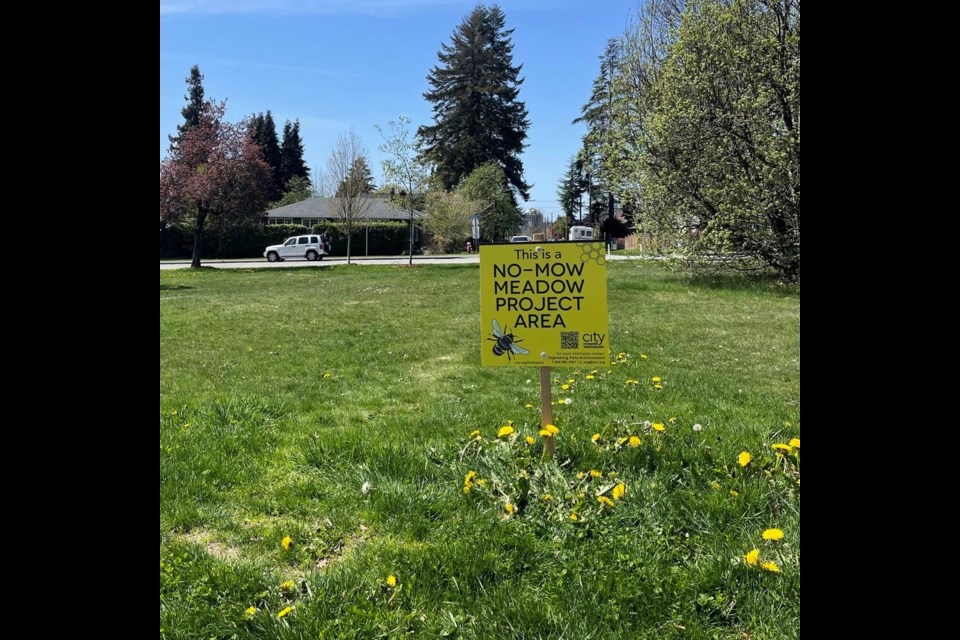It’s mow no mo’ for these sections of grass in the City of North Vancouver.
In an effort to support pollinator species, which are integral to food production, the municipality is letting two plots of grass grow nuts this year. A boulevard on East Keith Road near St. Andrew’s Avenue and a section along Grand Boulevard West between East 11th and 9th streets won’t be cut this season, unless there is an elevated risk of fire or another concern, according to city staff.
“This will be closely monitored and immediate action taken if required,” said spokesperson Jody Robertson, adding that staff will likely mow and tidy the areas in the fall.
The total area to be left unmown is around 75,000 square feet, with about 25 per cent of the space over-seeded with a bee-friendly flowering lawn mix. Under-utilized areas were chosen to limit the impact on public use of parks, Robertson said by email.
“We want to support pollinators in the CNV by creating more habitat available to them (more habitat should theoretically increase abundance and occurrence of pollinators),” she said. “This aligns with one of council’s strategic plan priorities – a livable city.”
The project may expand in the future based on the results this year. Lessons learned could inform how the city views use of boulevards and other under-utilized park spaces, Robertson explained.
Last summer, community volunteers and city workers planted a pollinator garden on the west side of Grand Boulevard between East 17th and 18th streets, in part to educate the public on the importance of pollinator habitats.
Of the 20,000 bee species worldwide, around 400 to 600 live in British Columbia, with around 100 to 150 in the Vancouver area, noted Robertson. Bees use pollen for food, and move pollen from plant to plant while collecting it. “In doing this they support conservation, ecosystems and human needs primarily through food production,” she said.
Bee-utiful news! 🐝 The City is buzzing with excitement over its new no-mow meadow project. By leaving select under-utilized grassy areas wild, we're ensuring bees + butterflies have a safe place to pollinate and thrive. Let's save the bees and make our city a healthier place! pic.twitter.com/E5Xu0UeJnb
— City of North Vancouver (@CityOfNorthVan) May 3, 2023



